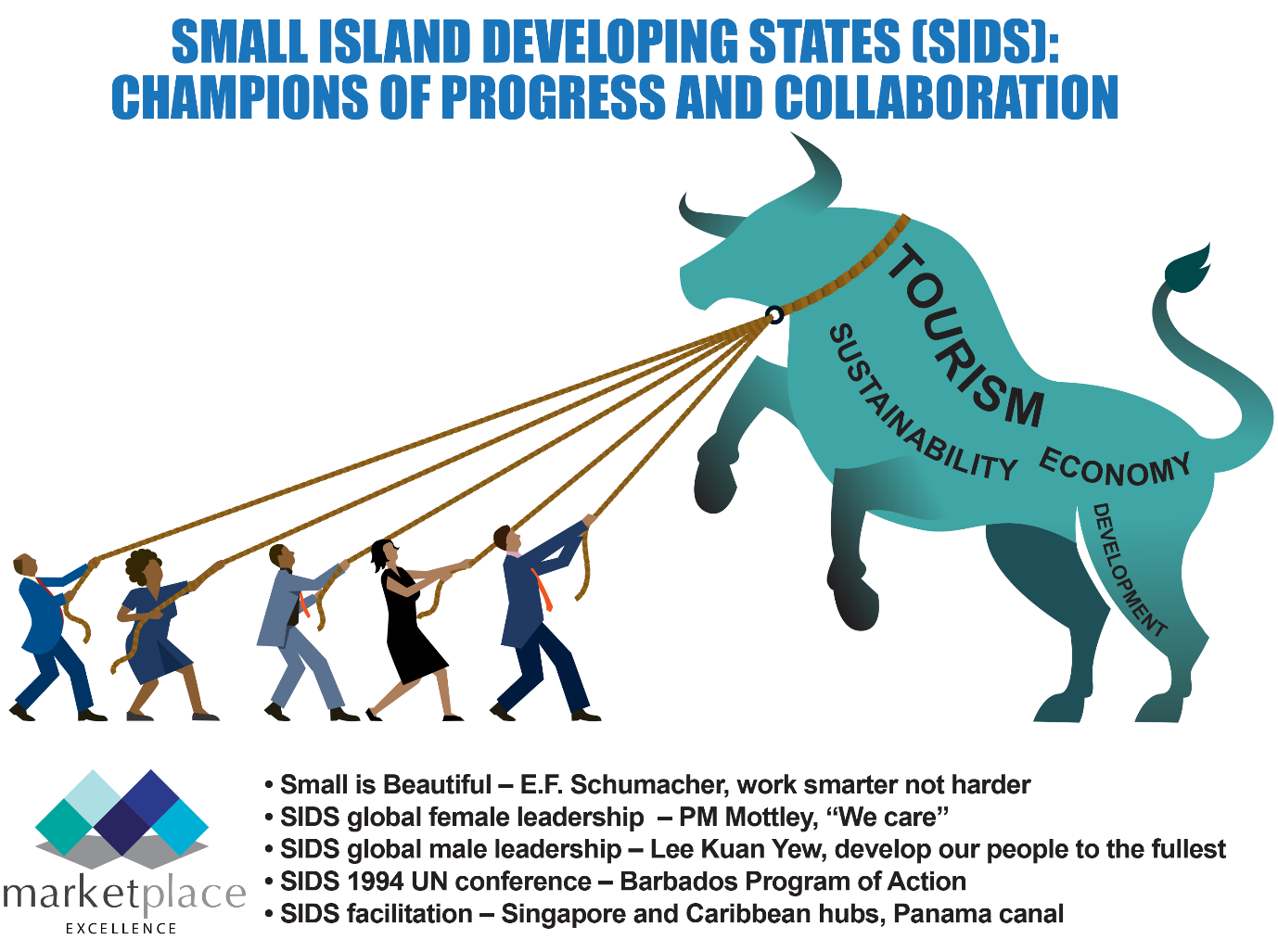“It is like a mustard seed, which a man took and threw into his own garden; and it grew and became a tree, and the birds of the air nested in its branches.” – Luke 13:19
Even though the business world is replete with successful business ventures, it is useful to remember that these businesses began with one or two entrepreneurs with one idea, albeit with massive-sized DNA.
My focus for over the past 25 years has been to reduce the high failure rate of startups in SIDS (Small Island Developing States) economic environments.
If we can reduce this failure rate and nurture to the fullest other “DNA of an elephant” ideas, there will be a positive impact on society as a whole and these remarkable potential achievements of SIDS should not be ignored.
SIDS embody the principles set forth by E.F. Schumacher in his book, “Small is Beautiful”. They have embraced appropriate technologies and innovative approaches to overcome their inherent limitations in size and resources. These small states have shown that working smarter, not harder, is the key to unlocking their potential.
There are several innovative factors that are associated with a thriving SIDS culture. They include entrepreneurship and startups with shepherding paving the way for business success; and global female leadership as exemplified by the Prime Minister of Barbados, Mia Mottley, who has demonstrated that nurturing and caring for the environment go hand-in-hand with economic development.
SIDS understand that addressing the climate crisis is not just an obligation but an opportunity for innovation. By championing climate action, they have become beacons of hope in a world grappling with environmental challenges.
Not to be outdone, SIDS have also witnessed exceptional male leadership, exemplified by the late Lee Kuan Yew. His vision of developing human capital echoes throughout island nations. SIDS understand that their people are their greatest asset. By investing in education, skills training, and empowerment to fulfill market demand, they have created resilient and adaptable workforces, capable of driving economic transformation.
SIDS have consistently punched above their weight on the global stage. In 1994, the UN small islands conference in Barbados marked a turning point for these nations. The Barbados Program of Action laid the foundation for sustainable development and highlighted the importance of diversity. Today, SIDS are not only recognized for their picturesque beaches and vibrant cultures but also for their unique tourism attractions and services that promote environmental conservation and community development.
Moreover, SIDS have leveraged their strategic geographic locations to become trade facilitation hubs. They have capitalized on their prime geographical positions to serve as gateways between regions, connecting global markets and facilitating cross-border trade. Their efforts have stimulated economic cooperation and opened opportunities for businesses worldwide.
Singapore’s trade networks are within 12 hours flying time from Singapore in every direction. The Caribbean islands have the potential to be a natural trading bridge to and from North America, South America, Europe, and via the Panama Canal, which was constructed primarily with Caribbean labor to facilitate trade between the East and the West.
As we witness the rise of SIDS, it’s crucial for us to celebrate their achievements, learn from their experiences, and collaborate with them on a global scale. In doing so, we can forge a brighter future where economic progress and environmental stewardship coexist. If SIDS win, we all win.

(Dr. Basil Springer GCM is a Change-Engine Consultant. His email address is basilgf@marketplaceexcellence.com. His columns may be found at www.nothingbeatsbusiness.com).
